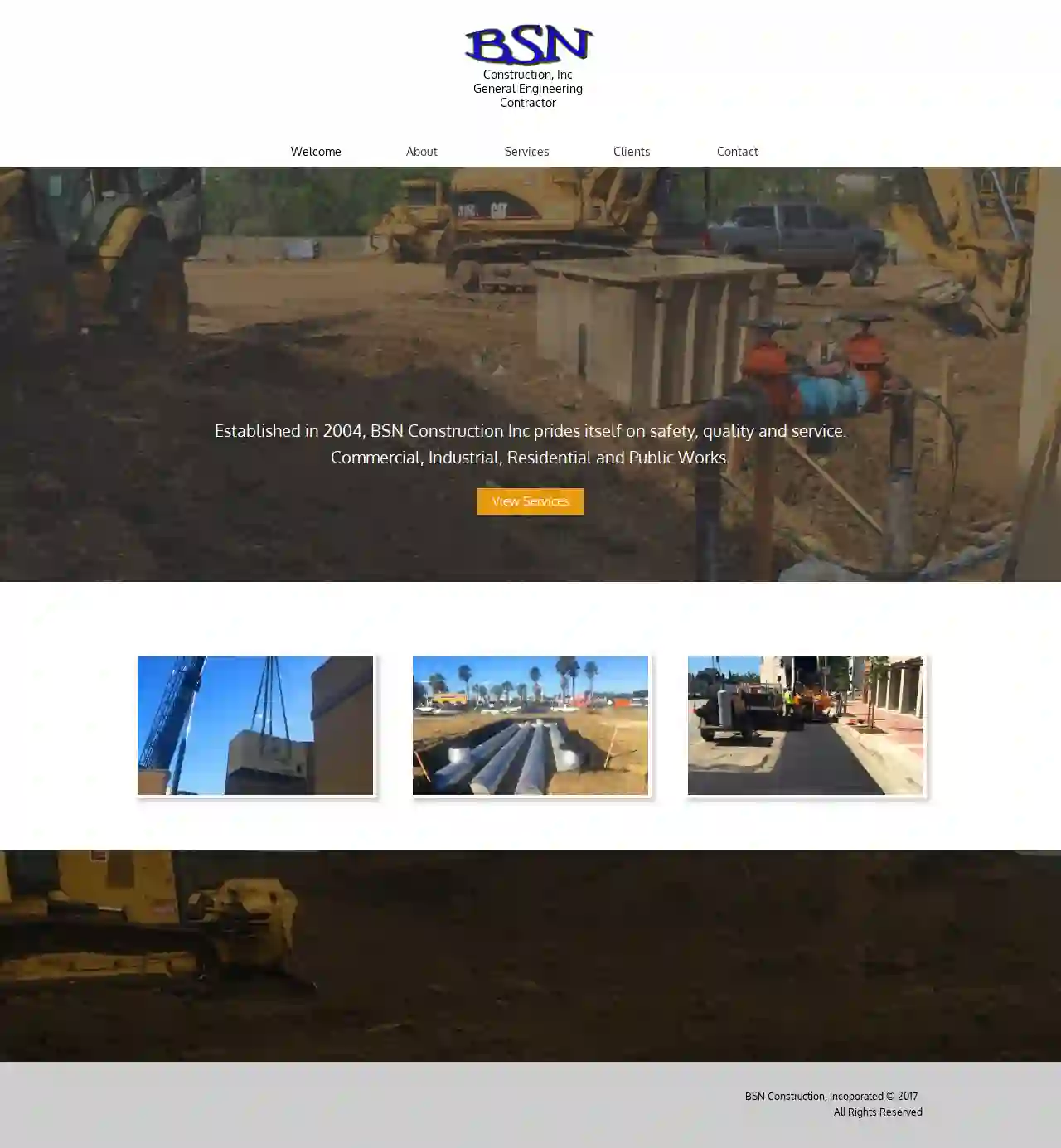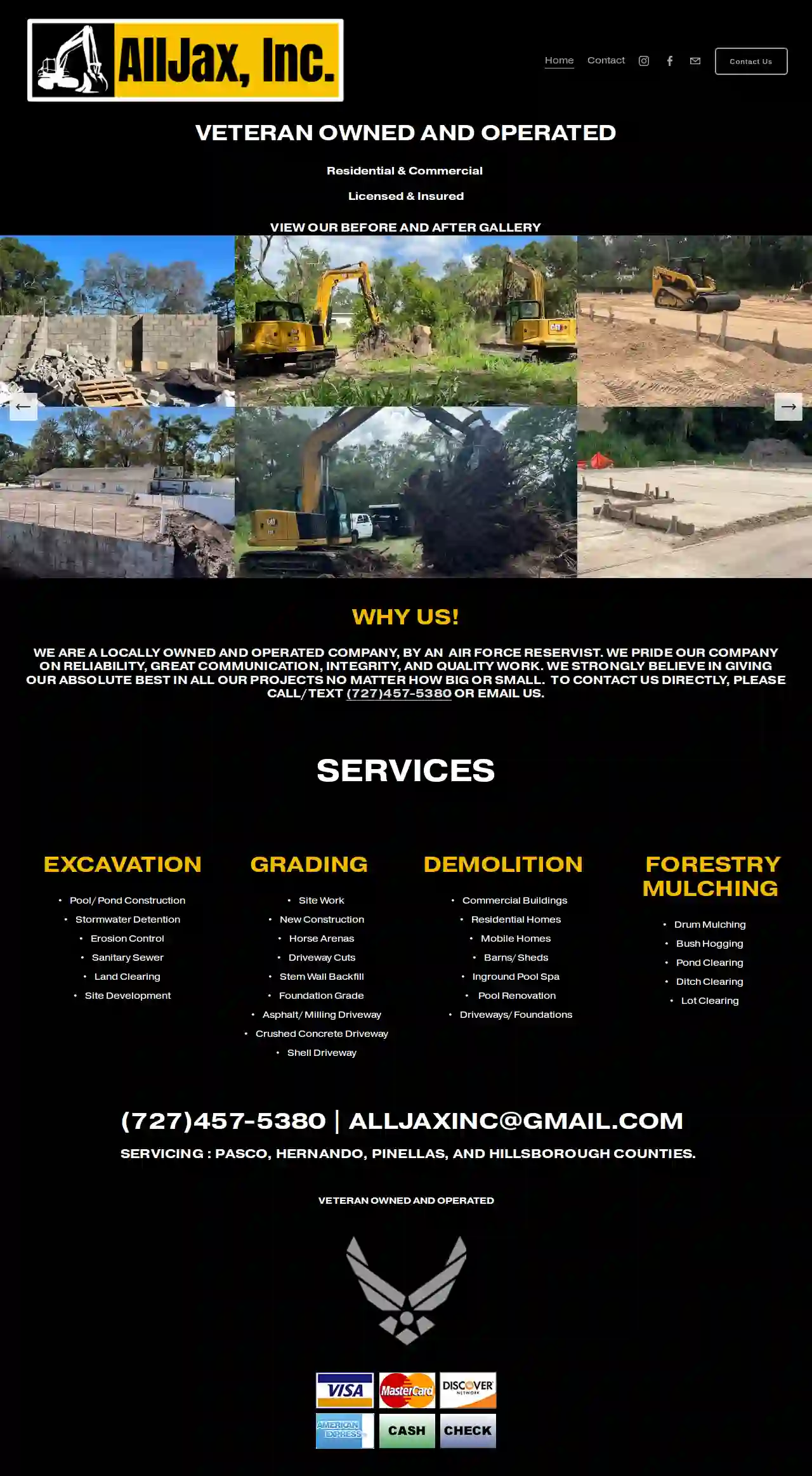Demolition Contractors Stockton
Top Structure Demolition in Stockton
Get 3 FREE Demolition Contractor quotes for your project today! Compare profiles, reviews, accreditations, portfolio, etc... and choose the best service.

Excavating Contractor Los Angeles
59 reviewsLos Angeles, USWelcome to Bobcat Excavating Services Los Angeles As an excavation services and bobcat services provider in Los Angeles, we at BSLA – Bobcat Services Los Angeles help our clients with any processes that involve removal of earth from the ground, transfer of earth from one site to another, backfilling of earth to previously excavated spaces, and modification of sites to suite various clients’ needs. Are you building or remodeling your outdoor space? Chances are that we can be of help. If you searched for “excavators near me” for you got to the right place! We are experts when it comes to excavation, bobcat services, compacting, filling and grading. We work on residential sites, commercial sites, and industrial locations. We are licensed and insured and all our machine operators are vigorously skilled in handling our heavy machinery and providing precision results.
- Services
- Why Us?
- Gallery
Get Quote
Ortega's Grading
52 reviewsVictorville, US- Services
- Why Us?
Get Quote
BSN CONSTRUCTION, INC
1Suite 200, 1000 Old Country Rd, Garden City, 11747, USBSN Construction: Your Trusted Partner for Quality Construction BSN Construction is a family-owned and operated business with over 20 years of experience in the construction industry. We are committed to providing our clients with the highest quality construction services at competitive prices. We specialize in a wide range of construction projects, including residential, commercial, and industrial. We are also a licensed and insured contractor, so you can rest assured that your project is in good hands. We understand that building or renovating your home or business is a big decision. That's why we take the time to listen to our clients' needs and work with them to develop a plan that meets their specific requirements. We are also committed to providing excellent customer service and keeping our clients informed throughout the entire construction process. If you are looking for a reliable and experienced construction company, look no further than BSN Construction. We are confident that we can provide you with the quality construction services you need to make your project a success.
- Services
- Why Us?
Get Quote
Souza Construction & Electric
52 reviews586 So. Farmersville Blvd., Farmersville, 93223, USSouza Construction Inc. is a growing construction business, striving ever forward to become a premier general contractor. From our beginning as a “one-man show”, until our present state as a “multi-faceted” team, one thing has remained constant, a commitment to customer service. It is this commitment that has helped Souza Construction Inc. nearly double its sales every year for the last four years. We firmly believe that it will be this continuing commitment that will assist us in continuing this phenomenal growth pattern. Essential to this excellent service are our capabilities as a builder and a business. THE SOUZA COMMITMENT Souza Construction Inc. has committed itself to recruiting and training leaders in both the construction and professional world. Assembling a team of this caliber is not a quick or simple process, but requires diligent research, highly refined discernment, and continuous assessment. However, it is just this level of commitment and attention to detail that sets us apart. Souza Construction Inc. has made this our primary goal: understanding our customers and their needs, utilizing excellence in the field and in administration, and combining this with an unwavering commitment to customer satisfaction; this is Souza Construction Inc.
- Services
- Why Us?
- Testimonials
- Gallery
Get Quote
Applied EarthWorks
51 reviews1391 W. Shaw Ave., Fresno, 93711, USApplied EarthWorks: Ethical Consultants for Project Success Applied EarthWorks is a company with over 28 years of experience in cultural and paleontological resource management. We are committed to effective and affordable strategies that achieve progress and preservation, working together with our clients to ensure that projects are completed in a way that respects the environment and cultural heritage. We are certified by the California Department of General Services (DGS) as both a Small Business Enterprise (SBE) and a Small Business for Public Works (SB-PW).
- Services
- Why Us?
- Accreditations
- Gallery
Get Quote
A-1 Septic Services
4.675 reviewsModesto, USThe Best Value in Septic Tank Services in Merced County, Stanislaus County, and San Joaquin County Since 1990 The Best Value in Grading & Excavating in Merced County, Stanislaus County, and San Joaquin County Since 1990 Best Choice for Portable Restroom Rentals in Merced County, Stanislaus County, & San Joaquin County Expert Septic Tank Services, Grading & Excavating in Modesto, Oakdale, Escalon & Surrounding Areas For the best septic tank installation and repair, septic tank pumping, utility trenching, and grading/excavation services in Merced County, Stanislaus County, and San Joaquin County, choose A-1 Septic and AAA Backhoe Service. For over 30 years, we've been the preferred septic tank company and excavator for thousands of general contractors, builders, commercial businesses, property managers, city agencies, homeowners, and real estate agents. They trust us because we consistently deliver high quality workmanship and personalized customer service at very competitive prices. Whether you need septic tank repair in Modesto, leach line additions in Ceres, or utility trenching in Salida, we have the skills, knowledge, and expertise to get the job done according to the highest industry standards. AAA Backhoe Service holds a Class A General Engineering Contractors License from the California State License Board, and has earned an A+ rating with the Better Business Bureau. We always use the industry's best practices to ensure that all work gets completed on time, in budget, and in accordance with county and city building codes.
- Services
- Why Us?
- Accreditations
- Testimonials
- Gallery
Get Quote
Bay Area Hydrovac
12 reviewsHayward, US- Services
- Why Us?
Get Quote
Middle Georgia Land Management LLC
1Suite 200, 1000 Franklin Avenue, Garden City, 11549, USMidgaland Management: Your Trusted Partner in Property Management Midgaland Management is a leading property management company dedicated to providing exceptional service and maximizing returns for our clients. We understand the complexities of managing rental properties, and we are committed to handling every aspect with professionalism and care. Our team of experienced professionals is dedicated to providing personalized attention to each property and tenant. We handle everything from tenant screening and lease administration to maintenance and rent collection, ensuring a smooth and hassle-free experience for our clients. At Midgaland Management, we believe in building strong relationships with our clients and tenants. We are committed to open communication, transparency, and providing exceptional customer service. Our goal is to exceed your expectations and make property management a seamless and rewarding experience.
- Services
- Why Us?
- Testimonials
Get Quote
Next Construction
113902 Harbor Blvd., Garden Grove, 92843, USBuilding the Future From conception to completion, our entire team of estimators, designers, project managers and experienced executives make our clients’ needs a priority. We have experience in a wide variety of projects and delivery methods, and use both time-proven practices and cutting-edge techniques to make sure our customers’ projects meet their maximum potential. NEXT Constructions Company is an award winning general contractor specializing in corporate, higher education, K-12 education, historic renovation, multifamily, religious, senior living and specialty projects. Next Construction, Inc is a design & build construction firm with over 20 years of experience in ground-up, remodeling, and tenant improvements for both commercial and residential custom homes. Our project diversity and commitment to quality has allowed us to exceed client needs and expectations. Our services include general contracting, construction management, design build and pre-construction services. For a long time, we’re served the construction industry with the same reliable, award winning service that has made us California’s most trust contractor. While our clients’ satisfaction is our primary metric for excellence, we have also been recognized with numerous awards over the years for safety, business practices, and design excellence. We understand that projects represent not only buildings, but the plans for the future of our clients.
- Services
- Why Us?
- Gallery
Get Quote
AllJax Inc Excavation, Forestry Mulching & Pond Clearing
4.935 reviewsDavis, USAllJaxInc is a locally owned and operated company, run by an Air Force reservist. We take pride in our reliability, excellent communication, integrity, and high-quality work. We are committed to delivering our best on every project, big or small. We are dedicated to providing exceptional service to our clients in Pasco, Hernando, Pinellas, and Hillsborough Counties. Our team is experienced in a wide range of services, including excavation, pool and pond construction, stormwater detention, erosion control, sanitary sewer, land clearing, site development, forestry, demolition, and grading. We are fully licensed and insured, and we are proud to be a Veteran Owned and Operated business. To contact us directly, please call/text (727)457-5380 or Email Us.
- Services
- Why Us?
- Gallery
Get Quote
Over 3,943+ Excavation Companies in our network
Our excavation pros operate in Stockton and surroundings!
ExcavationHQ has curated and vetted Top Excavation Contractors in and around Stockton. Find a reliable pro today.
Frequently Asked Questions About Demolition Contractors
- 'Can I see proof of your licensing and insurance?' Verify their credentials and coverage.
- 'What experience do you have with projects like mine?' Ensure they have relevant expertise.
- 'Can you provide references from past clients?' Check their reputation and customer satisfaction.
- 'What are your safety protocols?' Prioritize contractors who emphasize safety.
- 'How will you handle hazardous materials?' Ensure they have proper procedures for asbestos or lead abatement.
- 'What is your timeline for completing the project?' Understand the project duration.
- 'How will you manage noise, dust, and debris?' Discuss mitigation measures for minimizing disruption.
- 'What are your payment terms?' Clarify payment schedules and any required deposits.
- Safety: Experienced contractors have the knowledge, skills, and safety training to execute demolitions safely, minimizing risks to workers and surrounding areas.
- Efficiency: Contractors have the specialized equipment and expertise to complete demolitions efficiently, saving time and reducing project costs.
- Compliance: Reputable contractors are familiar with local regulations and permitting requirements, ensuring compliance and avoiding legal issues.
- Waste Management: Contractors have waste management plans to handle debris responsibly, including recycling and proper disposal.
- Liability Protection: Insured contractors protect you from financial responsibility for accidents or damages during the demolition process.
Do I need a permit for demolition?
Can I do demolition myself?
What questions should I ask a demolition contractor before hiring them?
What are the benefits of hiring a professional demolition contractor?
Do I need a permit for demolition?
Can I do demolition myself?
What questions should I ask a demolition contractor before hiring them?
- 'Can I see proof of your licensing and insurance?' Verify their credentials and coverage.
- 'What experience do you have with projects like mine?' Ensure they have relevant expertise.
- 'Can you provide references from past clients?' Check their reputation and customer satisfaction.
- 'What are your safety protocols?' Prioritize contractors who emphasize safety.
- 'How will you handle hazardous materials?' Ensure they have proper procedures for asbestos or lead abatement.
- 'What is your timeline for completing the project?' Understand the project duration.
- 'How will you manage noise, dust, and debris?' Discuss mitigation measures for minimizing disruption.
- 'What are your payment terms?' Clarify payment schedules and any required deposits.
What are the benefits of hiring a professional demolition contractor?
- Safety: Experienced contractors have the knowledge, skills, and safety training to execute demolitions safely, minimizing risks to workers and surrounding areas.
- Efficiency: Contractors have the specialized equipment and expertise to complete demolitions efficiently, saving time and reducing project costs.
- Compliance: Reputable contractors are familiar with local regulations and permitting requirements, ensuring compliance and avoiding legal issues.
- Waste Management: Contractors have waste management plans to handle debris responsibly, including recycling and proper disposal.
- Liability Protection: Insured contractors protect you from financial responsibility for accidents or damages during the demolition process.